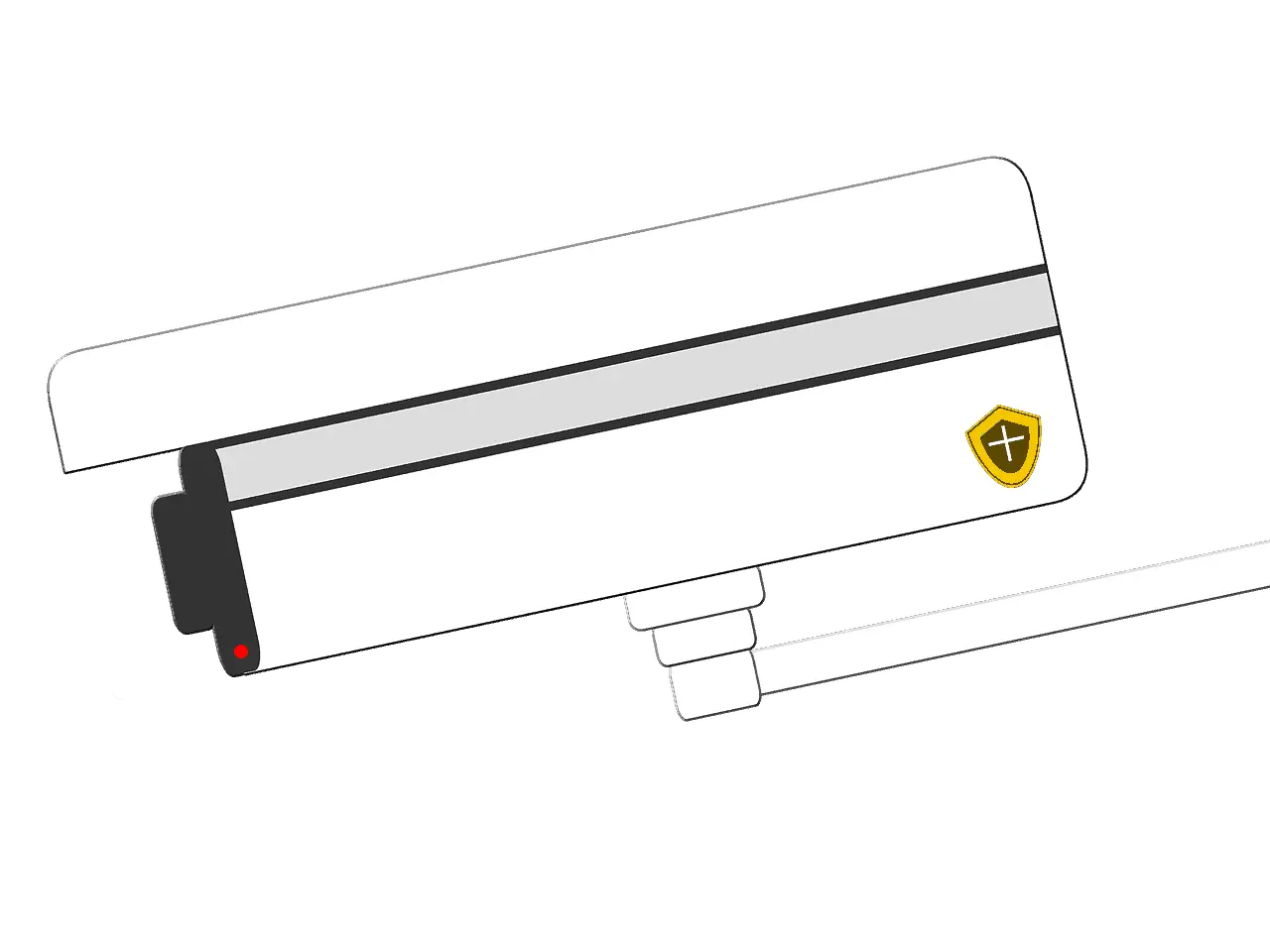If you’ve decided to invest in a CCTV system, but aren’t too familiar with all the technology and the jargon that surrounds it, then the prospect of dipping a toe in the market can be truly daunting. You probably mull over all sorts of questions in your mind: questions like do I really need CCTV, if so, do I want an indoor or outdoor security system, what sort of home security camera model will best suit my needs and am I likely to break the bank if I take the plunge? Well, hopefully the following information might go some way to answering some of those important questions.
CCTV: the practical uses and cost overview
Costs
You might have given some thought to investing in a CCTV home security system, but decided that it wasn’t for you: after all, CCTV technology is a complicated business, and therefore it has to be expensive – right? Well, not necessarily. Greater competition now means home CCTV, IP cameras and home network cameras are now increasingly more affordable.
Usefulness
Perhaps your biggest reservation isn’t cost: it might simply be, do I actually need CCTV to keep my possessions safe? Well, at the end of the day, it’s all down to personal choice. However, it’s worth remembering that CCTV systems aren’t only there so you can provide evidence to the authorities after a break-in: they’re there to offer reassurance in all sorts of other ways:
- IP cams can give you peace of mind when you’re out of the home
- conspicuous security cameras can act as a deterrent to burglars
- indoor cams are versatile pieces of kit and are useful for monitoring kids, pets and relatives – though not in a sinister way?
- some insurers may also give you better premiums if you have a CCTV system
What’s the best CCTV system for my home, and what features does my system really need?
The biggest problem for any prospective purchaser is choice: well, actually, having too much choice. Well, forget those ‘choice’ issues for the time being. If you want to choose the right camera for your home, the two most important questions to address are what do you need the CCTV system to do, and what camera will best answer these needs?
What’s the best CCTV camera for you?
Well, the choice really depends on the following:
- what you want your security camera to watch
- the camera features you ideally require
- the zone(s) you want to protect, and
- your technical know-how and understanding of the area
Whatever CCTV system you’re considering, it’s worth remembering that the most important consideration is buying the system that works for you and does what you want it to. Don’t let some smart and persuasive sales assistant can talk you into buying features you don’t really need.
What mistakes should you try to avoid when buying a CCTV system?
- needlessly breaking the budget
- picking an outdoor camera when an outdoor would have more useful
- not understanding your target well enough
- paying for a night-vision camera when there’s no need
- pick a resolution you actually need
- not really considering how the CCTV footage will be viewed
- Not thinking about how the CCTV will connect to other devices
- Positioning the camera in the wrong place
Know your budget, and try to stick to it
You can pick up a single camera for indoor monitoring for very little cost. If that is all you need for your home security requirements, then shop around and get the best possible price, though remember, you’re not going to be getting the best quality at that price. If you require multiple cameras for monitoring, then the overall budget will naturally increase. If you want a top-notch high-resolution camera, then the price will rise again.
Be realistic and try to get the best system you can within the budget you’ve set. If you’re looking to build a custom set up, then you’ll also need: cameras for each area you want to protect, wiring and network switches if you opt for wired cameras and their associated installation costs, recording via NVR or DVR, plus hard drives, third-party monitoring software and Cloud storage subscription costs.
Indoor or outdoor cameras?
If you’re looking for an outdoor camera, then there are certain considerations you should think about. Outdoor CCTV cameras are designed to withstand the elements. IP66 housing is rated as waterproof under normal conditions, and will keep dust from your IP cam too. Outdoor cameras are also rated according to the temperature range they can tolerate. If it’s going to be in direct sunlight all day, the temperature on the hardware will increase rapidly. The same considerations apply to cold and wet conditions
If all you need is an indoor surveillance camera, then you will obviously not have to pay as much, but they won’t be IP66-rated? If that could prove to be an issue, then you’ll need to discuss the matter with your supplier.
Who, or what, is the CCTV camera going to be monitoring
The choice between picking an indoor or outdoor CCTV system will largely be dictated by your video target – that is, the person you’ll be monitoring with your camera. CCTV doesn’t simply have to be used for security monitoring purposes like securing the exterior of the home, monitoring vacant property or keeping tabs on sheds, garages and lock-ups. CCTV can also be useful for monitoring deliveries, monitoring elderly relatives’ properties in-between visits, keeping an eye on babies whilst they sleep upstairs and keeping an eye on the family pet whilst you’re out at work.
If you have a clear idea about what you want your camera to do, then you may be able to save some money by not paying for features you won’t need or use.
Do you really need night-vision?
If you want to use video security to protect a property or home, decent CCTV camera night-vision is really helpful, as it can potentially pick out a target in complete darkness up to 30m away. However, as with most things in life: you generally get what you pay for. CCTV cameras manufacturers do claim to rate their cameras according to effective night-vision range, but some of these claims need to be viewed cautiously. The important point to remember is that IR illumination is no substitute for proper external lights on your target area.
Resolution, resolution, resolution
Resolution matters for home CCTV. Higher resolution IP cameras can capture more details per frame, giving you a much better picture. The question you should be asking yourself before stumping up your cash are: how detailed do you need the surveillance video to be? You may not need the best CCTV camera sensors for your purposes.
If you’re only looking to monitor your garden of front door, then a lower resolution, cheaper IP camera will work well enough. If you are looking to protect valuable items in high crime areas, however, a high-resolution camera is probably critically important.
Not paying enough attention to how you’re going to store your CCTV footage
Recording security footage from a CCTV camera is one thing: watching it back is quite another. It’s possible to view a real-time video stream from a networked camera using all sorts of software and assorted apps, but if you want to view what happened at the property at a specific time in the past, then you’ll need somewhere to store your video footage, and you’ll need to ask yourself some questions. Where will you store the information? DVR, NVR or SD storage, or through a subscription to a CCTV cloud storage provider? How much storage will you need on your hard drive, and how long will you need to store this high resolution home CCTV footage for?
Storage costs money, and the more high-quality HD security camera footage you generate, the greater the expense.
Connectivity
Many people buy a CCTV system and don’t really give enough consideration to connectivity. They don’t think about how they’re going to get the high resolution capture footage they’ve captured to their computer or mobile phone for reviewing.
Wireless CCTV cameras are easy to install, and easy to setup. For indoor surveillance, a power supply is all you need.
Wired home CCTV kits need a bit more thought. If you are a confident doing jobs around the home, then drilling holes and running cables for hard-wired outdoor CCTV cameras is a relatively straightforward task. However, you’ll need to think about the positioning of the camera, where your network switches or router will live and how all this connects to your NVR or NAS.
Positioning
If you want your CCTV camera to see important information like an intruder’s face, then you’ll need to position the camera where it can gather this information. If all you get to see is the top of a burglar’s head, then that’s practically worthless.
Cameras are limited by their field of view. A better CCTV FOV captures video from a wider angle and gives you better area coverage. If you’re looking to monitor a large back garden or al your driveway with a single CCTV camera, you’ll definitely need a wide FOV. Motorised Pan, Tilt and Zoom (PTZ) cameras will let you move and rotate your CCTV camera remotely. They can be set to sweep areas and continuously monitor wide targets areas.

